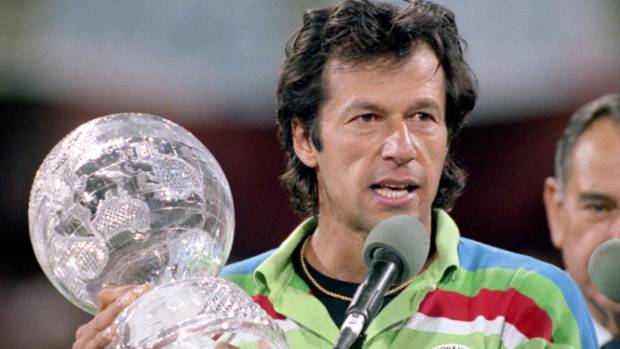Pakistan cricket remains in debt of those who helped the country grow and stand on its feet to become Cricket as a game was as popular in Lahore and in Karachi as it was in other parts of India which later became a new country.
What really helped them most was the presence of people in the country who had the experience of playing at all levels and who stepped out to not only launch a cricket board but also prepared the young ones to achieve the honour of becoming a Test-playing nation within five years of its existence.
Hafiz Kardar, Amir Elahi, and Jehangir Khan had played for India in Tests. There was Dilawar Hussain, Nazir Ali, Wazir Ali.
And then there were others like Justice Cornelius, Iftikhar Hasan Mamdot who in early years took up the responsibility to look after the players and the cricket board as years passed by.
There were others to groom the players. The most prominent among them were Abdur Rab in Lahore and Abdul Aziz Durrani known as Master Aziz.
Master Aziz’s contribution is unforgettable, to say the least, in Karachi as was the contribution of Rab in Punjab.
Master Aziz had migrated from Bombay to Karachi and had the experience of the game at first-class level. He had also played an unofficial Test for India against the Australians.
His career was cut short by an injury to his eye while keeping wickets.
Tall, heavily built and dark in complexion, he soon got into his strides after joining Sindh Madressah where he lived in a room and coached the schoolboys, including Hanif Mohammad and his brothers. Hanif, Mushtaq Mohammad, and Sadiq Mohammad, Mohammad Munaf, to mention a few, were his prodigies and till the Master’s death in the late seventies remained in his debt.
Master Aziz’s son Saleem Durrani, who remained in India, later became a Test player for India, a fine left-handed all-rounder.
In 1957 I was picked from Sindh to be part of Pakistan’s first coaching camp held at the National Stadium, Karachi, consisting of promising youngsters from all the universities of Pakistan, including from East Pakistan.
We were at the stadium for a month coached by him, by JeomalNaoomal, the first Indian opening Test batsman who was from Karachi.
Four of us, Ijaz Butt, Saeed Ahmad, Nasim-ul-Ghani and Haseeb Ahsan, were selected to tour the West Indies.
Master Aziz was the only coach who lived at the National Stadium. One day he told me that when his son Saleem Durrani was born in Bombay, “I went to a sports shop and bought a cricket ball to bring back home and show it to the baby who loved watching the shining red ball.
“This was my way of coaching my son in the hope that when he grows he becomes a cricketer and he did,” Aziz told me.
He would also ask me to listen to his comments on cricket and coaching and write an article for him to get it published in the Karachi evening paper, ‘The Leader’.
I would often do that for him and I could say that was the beginning of my career as a writer.
A loving personality, he knew his game and the finer points to become a good batsman and or a successful bowler.
He not only coached but also umpired in first-class matches and was notoriously known for not giving out his favourite players.
In relation to Hanif Mohammad’ batting, it was a common belief that he would hesitate to raise his finger against him to make sure that Hanif stayed longer at the crease.
“I want him to become the world’s best,” Aziz would say and Hanif did become the best of his era.
There were others who umpired as well as coached such as Gul Mohammad in Lahore and Rab and in Karachi, Tajamm-ul-Hussain, Idrees Baig and Daud Khan. But none was as popular and noticeable as was the Afghan from Kabul who had settled in Bombay in India and worked in the police force before migrating to Pakistan.
They say, well begun is half the work done. But it looked like the organizing of Pakistan Cricket Board’s OSCARS – the annual award ceremony held in Karachi – was ill-planned and mis-managed.
It began with mismanagement and ended on the same note. It seemed that PCB hierarchy wanted a ceremony in haste before the new PTI government sacks them. That obviously made the PCB”s OSCARS a flop show.
To begin with the overflow of guests in the five star hotel’s hall smacked of the poorly-managed guests list. Some of the big shots of the corporate world were sharing seats while a few were silently and distastefully sitting behind on small desks.
When the event managers BBCL – surfaced after a gap of nine years and on the recommendations of PCB COO Subhan Ahmed – admitted the count was 700 in a capacity of 500 – it became evident that it will be hunky dory sort of a function.
When it was announced that dinner will be served before the ceremony starts, an overflow of guests rushed towards the Dining hall. Some top guns were clearly upset at being stopped near a rope. Some guests had plates but no food while some had to wait in the queue longer than their liking. In the end some of them left without eating.
Once the ceremony started it was felt that some top level players were missing. Either they were not invited properly or they stayed away for obvious reasons of change at the PCB. Legends like Javed Miandad, Wasim Akram, Inzamam-ul-Haq and Younis Khan were conspicuous by their absence. Apart from Inzamam the other three live in the city, not so far from the venue.
Former captain Zaheer Abass also missed the event as he was in UK on some personal work. Stars like Iqbal Qasim and Mohsin Khan. One former fast bowler Rashid Khan was sent a totally different invitation card bearing a different venue and date!
After two concise speeches from the sponsors comes the event manager, Pervez Iqbal who exposed himself and his company for not being in the fray for nine years and got the assignment only because of Subhan Ahmed’s recommendations.
“I can’t thank you much for giving me this great opportunity,” said Iqbal. “We were out of the equation for nine years and the marketing director Nyla Bhatti did not know us but showed faith in us.”
It almost summed up the compromises PCB made on this function!
The idea of having a memorabilia auction in between the announcement of awards also proved an unwise exercise. In fact auction left a bad taste as the attendees did not look interested in bidding. As a result some of the equipments of the players were only bought by the players themselves or the onus fell on the Quetta Gladiator owner Nadeem Omar. A wise idea would have been to hold an auction in UAE where the presence of more affluent people would have fetched more charity.
When the awards were announced no one knew what the criterion that was followed. If announced elsewhere, it should have been announced during the event. There were no nominations announced and names were announced absurdly.
While there was the best Test bowler, there was no Test bastman award! There was only best Twenty20 batsman award but no bowler. While there were encouraging awards for women cricketers, disabled and blind cricketers, there was no award for Under-19 players or a Lifetime award!
PCB has a team of workers. In fact it is the only cricket board where there are more than 900 employees. But, sadly, it doesn’t have a dozen men who can do proper work. They only have people who can spoil a good occasion like an annual awards ceremony.
Karachi: Pakistan Cricket Board (PCB) in collaboration with Titans Autographs and Memorabilia hosted Annual Cricket Awards.
The ceremony was held at a local hotel, Karachi where the awards were presented to the players and officials in the presence of the sports giants, singers, former cricketers and PCB’s senior officials.
Sarfraz Ahmed, captain of the national team in all formats was awarded Imtiaz Ahmed ‘Spirit of the Cricket’. In the ceremony, Fakhar Zaman was presented a ‘Special Award for Outstanding Performance’ for becoming the player to score fastest 1000 runs in ODI cricket and scoring first double century for Pakistan in the same format.
Final List of Awards for the year 2017/2018 is as follows:
* Imtiaz Ahmed Spirit of Cricket Award– Sarfraz Ahmed (Rs. 10 Lac)
* Special Award for Outstanding Performance– Fakhar Zaman Rs 2.5 million
* Best Test Player of the Year (Men) Mohammad Abbas (27 Wickets) Rs. 6 Lac
* Best ODI Player of the Year (Men) Hasan Ali, Bowler (33 Wickets) Rs. 6 Lac
* Best ODI Player (Women) Sana Mir (259 runs & 21 wickets)Rs. 6 Lac
* Best T20 Player of the Year (Men) Babar Azam, Batsman (489 Runs) Rs. 6 Lac
*Best T20 Player (Women) Javeria Khan, Batswoman (173 Runs) Rs. 6 Lac
* Emerging Player (Men) Faheem Ashraf Rs. 6 Lac
* Emerging Player (Women) Diana Baig Rs. 6 Lac
* Best Batsman Domestic (Men) Shan Masood (1857 Runs) Rs. 5 Lac
* Best Batswoman Domestic (Women) Javeria Khan (356 Runs) Rs. 5 Lac
* Best Bowler Domestic (Men) Aizaz Cheema (81 Wickets) Rs. 5 Lac
*Best Bowler Domestic (Women) Diana Baig (18 Wickets) Rs. 5 Lac
* Best Wicket Keeper Domestic (Men) Kamran Akmal (54 Victims) Rs. 5 Lac
*Best Wicket Keeper (Women) Sidra Nawaz (27 Victims) Rs. 5 Lac
* Best Player of the Year (Blind) Amir Ishfaq Rs. 5 Lac
* Best Player of the Year (Deaf & Dumb) Muhammad Naveed Qamar Rs. 5 Lac
* Best Player of the Year (Disable) Nihaar Alam Rs. 5 Lac
* Best Umpire of the Year Muhammad Asif Yaqoob Rs. 3 Lac
* Best Coach of Year Sajjad Akber, LRCA Rs. 3 Lac
* Best Referee of the Year Mohammad Anees, Lahore Rs. 3 Lac
* Best Scorer of the Year Azhar Hussain-Lahore Rs. 2 Lac
* Best Curator of the Year Riaz Ahmed, Rawalpindi Stadium Rs. 2 Lac
As winds of change are blowing in the country after the general election, panic has gripped the officials of Pakistan Cricket Board.
Haroon Rasheed, the most sycophant high official of the board, has been transferred from Lahore to Karachi as director south at the high performance centre. He replaces Iqbal Qasim, who resigned from the post last month.
Haroon Rasheed has been associated with PCB for a long time. He has been chairman national selection committee, director game development, manager and coach. Despite repeated failures in all these roles, he has managed to cling to the board in one capacity or other. He is ousted whenever the board faces criticism but comes back as soon as the dust settles down.
And this time he has been transferred to Karachi where a vacant post was awaiting him. Nobody knows for how long Pakistan will suffer for giving him 23 Tests and 12 ODI caps in 1977-83.
Why PCB chairman Najam Sethi transferred Haroon Rasheed would be learnt in the coming days when PTI takes charge. It seems that right now they are trying to accommodate someone at PCB headquarters in Lahore
It is surprising that Haroon Rasheed says he was fed up with politics in PCB headquarters and decided to come to Karachi. Great reason indeed! He was appointed first time in PCB in 2003 and now he is fed up with the politics.
The game of musical chair has been going on in PCB for long. When Haroon Rasheed left the job of director operations in Lahore and came to Karachi, one Usman Wahla was tipped to take the seat. His CV states that he is a commentator of golf. Well done PCB! You are doing a fine job!
The PCB is full of sycophant officials from Haroon Rasheed to Salahuddin Sallu, Agha Zahid, Ali Zia, Shahid Aslam, Subhan Ahmed, Asad Mustafa, Shafiq Ahmed Papa and so on.
A number of investigations are being conducted by NAB and FIA but the PCB high officials always escape using their good connections. But enough is enough!
Now the country is to be led by Imran Khan, who has come to power after 22 years hard struggle. He has promised CHANGE. There is no need to tell him what the importance of cricket is in this country. Being a former captain he well knows all the successful administrations of cricket-playing countries.
The days of the corrupt and the fake degree holders are numbered. They have caused enough damage. The game cannot bear them any longer.
From Captain to PM, Imran’s rise is a story of struggle and resolve. A lot of people put it a struggle of 22 years …. 1996 to 2018 … but I would put it a journey of 47 years.
From an Atchison student to Oxford to country cricket and then graduating to Pakistan team at Edgbaston in 1971 both his phases were full of struggle.
But he challenged himself in equal terms and at both the platforms. He struggled with his action and once an umpire called, “right arm round the wicket, anywhere,” to suggest his wavering line.
Imran’s best came as captain. He became one by default, but he was destined to lead. From the outset he showed signs of “leader of men.” He led by example and the proverbial “from the front” was his strongest point.
KARACHI: The Pakistan Super League (PSL) franchise Quetta Gladiators have joined hands with Red Bull for the seventh edition of upcoming nationwide Campus Cricket Tournament under the banner of „RBCC Future Gladiators‟ which will be played in eight cities of Pakistan.
Universities of as many as eight cities will fight it out to become national champion. The cities include Karachi, Lahore Peshawar, Quetta, Islamabad, Faisalabad, Multan and Hyderabad. Quetta Gladiators owner Nadeem Omar said that he is excited that his franchise are launching one of its kind partnership with Red Bull to mark the start of one of the biggest sporting activations in Pakistan.
“We‟re really excited to be partnering with Red Bull Campus Cricket and I believe this activation of RBCC Future Gladiators will allow us to see what sort of talent is available in Pakistan at University level,” Nadeem said.
“The players will have the big incentive of being monitored by Quetta Gladiators. We plan to induct any outstanding talent from the tourney in our activities. Two of the best players — one from Balochistan and one from rest of the Pakistan — will be included in All Stars Muqabla exhibition match which will be
played in Quetta with another PSL franchise in next few months.”
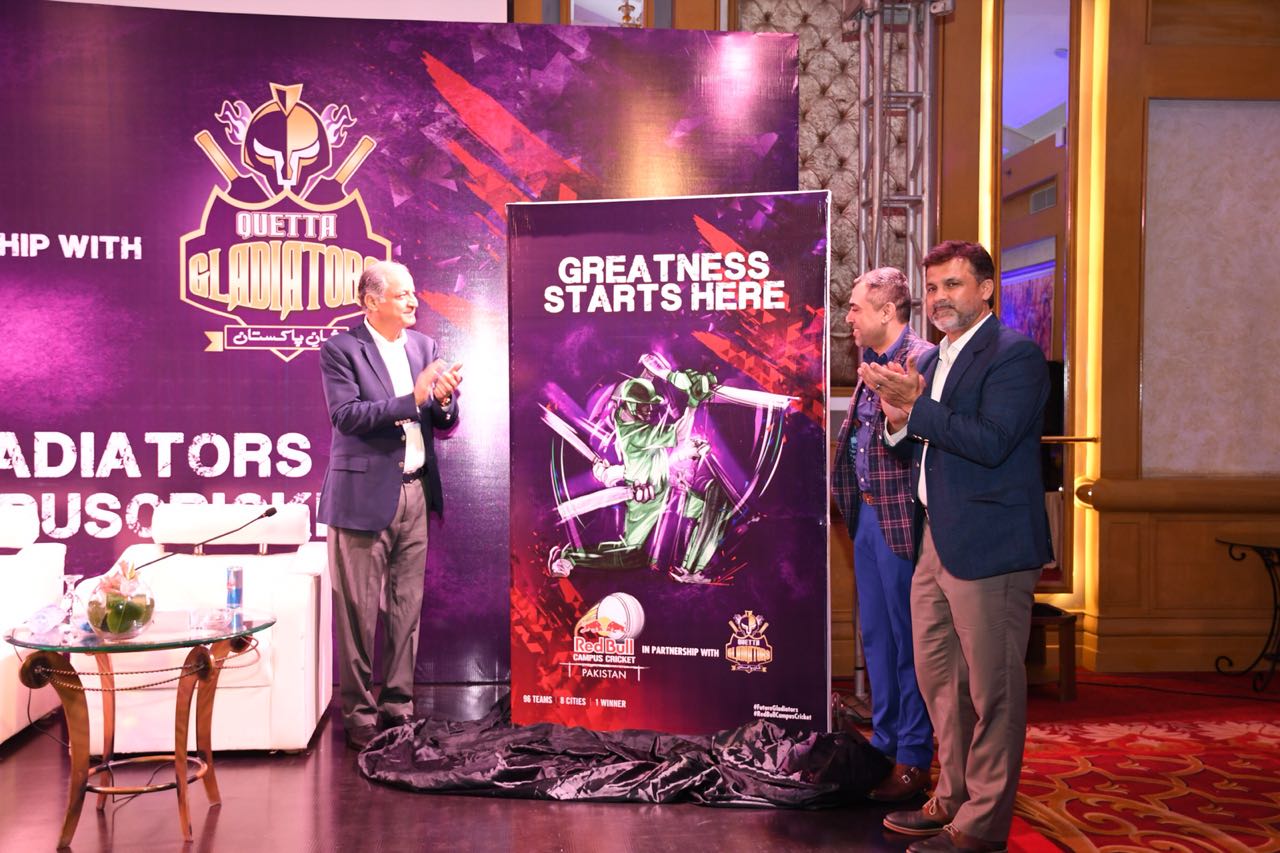
The All Stars Muqabla is the property of Gladiators and they played an exhibition match with Islamabad United in Rawalpindi in February before flying out to UAE for PSL season three.
The RBCC is the only global T20 cricket tournament for university students where campuses from eight countries participate for national pride and become world champions.
Meanwhile, Nadeem Omar further added that a high performance camp will also be staged for the best 11 players of the Red Bull Campus Cricket.
“Apart from inducting two players in All Stars Muqabla, we will call the top 11 players of RBCC Future Gladiators for a short high performance camp. We hope that we would be able to get some good talent from Balochistan as well from this initiative,” Nadeem stated.
“Also we endeavor to promote cricket in educational institutions with a hope of bringing in groomed athletes like legendary Imran Khan, Saeed Anwar and others. Sporting abilities should always be the primary qualification for any athlete but little education allows you to become an even better individual.”
KING CITY, Ont. – Match-winning innings by Babar Hayat and Fabian Allen propelled Vancouver Knights and Cricket West Indies B Team to victories on Canada Day over Winnipeg Hawks and Edmonton Royals, respectively, on day four of Global T20 Canada action at Maple Leaf Cricket Club.
Winnipeg won its opening encounter by 48 runs after posting a total of 203 runs against Montreal Tigers.
However in today’s opening game the Hawks’s ability to repeat this score was immediately compromised when Australian star David Warner (4) fell cheaply for the second game in a row, caught at point off the bowling of left-arm fast bowler Sheldon Cottrell.
After Warner’s early loss, Winnipeg’s innings never got going as they kept losing wickets with the introduction of Australian leg-spinner Fawad Ahmed, who clinched three of the next four wickets as the Hawks slumped to 58/5 in the 12th over.
Ahmed’s wickets included Lendl Simmons (24) caught on the boundary, Ben McDermott (8) bowled attempted a sweep shot and David Miller leg-before wicket.
Andre Russell clinched the other wicket to fall, that of his West Indian teammate Darren Bravo caught by wicket-keeper Chadwick Walton.
Bravo (30), the captain, and Tion Webster shared in a 44-run sixth wicket partnership taking the score to 112 in 17th over, before he was dismissed by New Zealand quick Tim Southee.
Webster (49) stayed unbeaten until the end of the innings as Winnipeg posted a respectable score on a pitch that was giving the bowlers assistance, considering it was used for the first time in the tournament.
American fast bowler Ali Khan gave the Knights a scare claiming the big wickets of Chris Gayle without scoring and Chadwick Walton (13) cheaply. Evin Lewis (9) also departed early as Vancouver found themselves precariously placed on 39/3 in the in the sixth over.
However Vancouver’s nerves were eased with a 97-run fourth-wicket partnership with Hong Kong captain Babar Hayat (65) and South African Rassie Van der Dussen (39), before Andre Russell’s (21) quick-fire innings, guided them to victory with two overs still remaining.
Summary Result: Vancouver Knights 162/4 in 17.4 overs (Babar Hayat 65, Rassie van der Dussen 39; Ali Khan 2-25) defeats Winnipeg Hawks 156/9 in 20 overs (Tion Webster 49, Dwayne Bravo 30; Sheldon Cottrell 3-28, Fawad Ahmed 3-33) by six wickets.
Match 6: Edmonton Royals vs. Cricket West Indies B
KING CITY, Ont. – All-rounder Fabian Allen’s blistering innings of 75 and a four-wicket haul by left-arm paceman Odean McCoy propelled Cricket West Indies B Team to their come-from-behind victory over Edmonton Royals.
Edmonton lost wicket at regular intervals and never built any innings momentum slipping to 67/5 in the 12thj over, due to a combination of tight bowling and excellent catching by the Caribbean boys led by McCoy, whose figures are the best of Global T20 Canada so far.
He was supported by left-arm spinner Kavem Hodge (4-0-18-2) and medium-pacer Sherfane Rutherford (3-0-25-2) and three outfield catches by Allen.
Only during the 68-run sixth wicket partnership between Irishman Kevin O’Brien (49) and South African Farhaan Behardien (29), did Edmonton put up any batting resistance.
At the halfway stage, the Edmonton experienced bowling attack led by former Pakistan and South African internationals Sohail Tanvir, Mohammad Irfan and Wayne Parnell presented a sturdy batting challenge for Cricket West Indies B Team.
When Brandon King (5) and Nicholas Pooran (13), who scored half centuries in the win for Cricket West Indies B Team on Saturday against Montreal Tigers, were dismissed for paltry scores, the team looked set to be defeated with the score on 66/6 in the ninth over.
But Allen, who was made famous in 2017 during the Caribbean Premier League for taking a catch that made worldwide highlight reels, had other ideas as he produced the performance of the tournament.
The all-rounder struck his half century in 17 balls, which was the fastest of the tournament and included eight towering sixes.
Action continues Monday beginning with a showdown between Australia teammates Steve Smith and David Warner as Toronto Nationals take on Winnipeg in the first match. In the second game, winless Montreal Tigers look for their first victory against Vancouver.
Summary Result: Cricket West Indies B Team 159/7 in 18 overs (Fabian Allen 75 not out; Hassan Khan 3-32) defeats Edmonton Royals 155/9 in 19.4 (Kevin O’Brein 49; Odean McCoy 4-22, Kavem Hodge 2-18, Sherfane Rutherford 2-25) by three wickets.
Toronto: Winnipeg Hawks got their Global T20 Canada campaign off to a convincing start with a comfortable 46-run victory over Montreal Tigers at Maple Leaf Cricket Club in the second day of competition.
Similar to the opening game on Thursday, where Toronto Nationals skipper Daren Sammy won the toss and chose to field, Montreal Tigers captain and Sri Lanka legend Lasith Malinga did the same in blazing hot conditions.
Malinga immediately set the tone for his side by claiming the big wicket of David Warner (1), bowling the star Australian with a delivery that seemingly kept low and beat him for pace.
West Indian and Australian batting pair of Lendl Simmons and Ben McDermott immediately steadied Winnipeg Hawks innings with a quick-fire 69 run second-wicket partnership.
However just when Simmons (36) was looking to step his innings up to another gear, New Zealander George Worker bowling left-arm spin dismissed him bowled as he attempted a slog to the mid-wicket boundary.
Another period of batting consolidation occurred between wicket-keeper batsman Ben McDermott and Darren Bravo in an aggressive 76-run third-wicket partnership, with Bravo particularly finding his big hitting range, striking five sixes compared to McDermott’s lone six.
With five overs to go the score was 151-2. Both Darren Bravo and McDermott had scored their half centuries and at this stage Winnipeg Hawks now had the perfect platform to launch for a 200 score.
Initially it seemed like Montreal could prevent this as they dismissed both Bravo and McDermott in the space of two overs via Malinga and medium pacer Kevon Cooper’s bowling.
Malinga, who finished with superb fingers of 4-0-19-2, produced a vintage yorker delivery to send Bravo back to the pavilion.
Unlike game one where the 200-plus total was chased down with ease, Montreal never put together enough partnerships as they lost wickets at regular intervals, after key big hitting West Indian opener Dwayne Smith perished in the first over without scoring.
Winnipeg’s all-round team bowling performance was led by Captain Dwayne Bravo, United States fast-bowler Ali Khan and Canadian leg-spinner Junaid Siddiqui.
Play continues Saturday with the first doubleheader, featuring Toronto Nationals against Edmonton Royals in the first match followed by the Tigers taking on Cricket West Indies B Team.
Cricket’s shorter formats are getting more and more popular these days with all kinds of tournaments coming up. Twenty20 leagues are being held in almost all major cricket-playing countries while seeds of T10s have been sowed in the United Arab Emirates.
The England and Wales Cricket Board is planning a 100-ball tournament with the last over of the innings consisting of 10 balls. This plan is getting mixed reactions but most are in favour of such an event.
The England and Wales Cricket Board is planning a 100-ball tournament with the last over of the innings consisting of 10 balls. This plan is getting mixed reactions but most are in favour of such an event.
However for now, Twenty20s remain the most followed format. Australia holds the Big Bash League, England hosts the T20 Blast and then there are the Caribbean Premier League and the Bangladesh Premier League, while South Africa has planned the T20 Global League. The United Arab Emirates and Afghanistan are also planning to organise Twenty20 tournaments. But the most talked about events are the Indian Premier League and the Pakistan Super League.
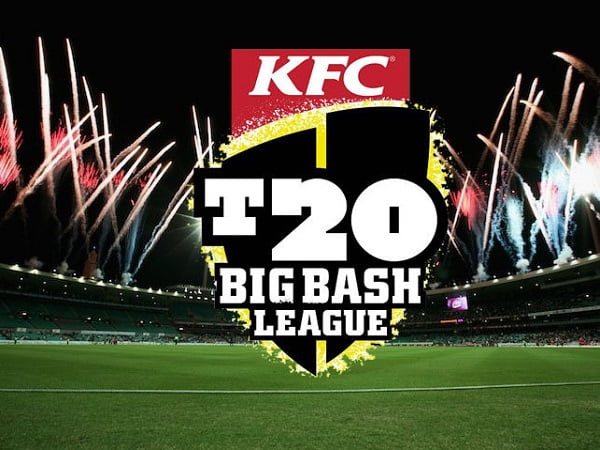
Let’s see some of the similarities and differences between the leagues of the two neighbouring countries.
The Board of Control for Cricket in India organised the inaugural eight-team IPL in 2008 and it became an instant hit. The most popular sport in the country being played in its shortest and most entertaining format, cricket stars from all round the globe, professional cheerleaders and presence of Bollywood celebrities was a recipe that was destined to succeed.
The BCCI was successful in luring major sponsors and franchise owners, and money came pouring in. That in turn helped in players getting paid in a way they had never imagined. The players make money, the franchises make money and the board makes a lot of money — a win-win situation for everyone.
It has also helped India in unearthing talent. A host of players who were spotted during the league have gone on to play for the national teams. Some of the examples are Jasprit Bumrah, Yuzvendra Chahal, Ravindra Jadeja, and Kedar Jadhav. The 2018 tournament has also thrown up some exciting talent, including youngsters Prithvi Shaw, Shubman Gill and Mayank Markande.
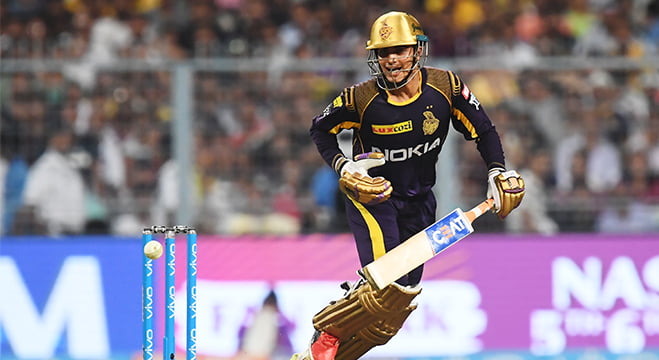
The biggest advantage the IPL has over other leagues is that it is held at a time when there’s hardly any international cricket being played anywhere. That means that almost all international stars are available and that certainly adds to the tournament’s value. The eight franchises play on a home-and-away basis and the involvement of the passionate crowds packing the stadiums to capacity is a treat to watch.
The Pakistan Super League might be just three years old but has caught the imagination of the people in such a small span of time. It is obviously not as big as the IPL financially but has been doing a decent job for the organisers considering that it is not that old.
Last year’s final and this year’s last three matches were held in Pakistan and all the games were jam-packed. PCB Chairman Najam Sethi, who is also head of the PSL, says the 2019 edition will see around half of the games played in Pakistan.
Just like the IPL, the Pakistan Super League has been vital for the country in finding players for the future. Leg-spinner Shadab Khan, fast bowler Hasan Ali, opening batsman Fakhar Zaman and all-rounder Faheem Ashraf are a few who have done wonders for Pakistan. These players were instrumental in Pakistan’s victory in the last Champions Trophy in England. Similarly, this year’s tournament has brought to the fore players like Asif Ali and Hussain Talat.
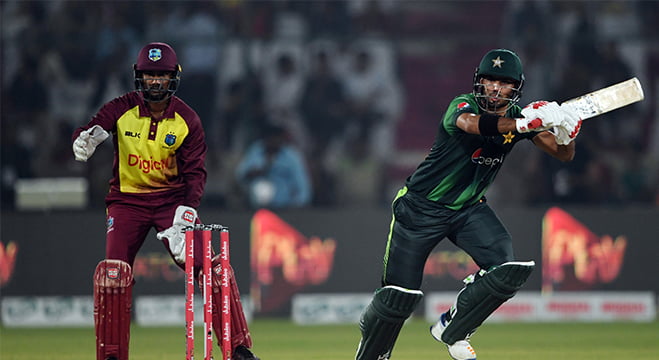
However, the biggest drawback for the PSL is that the Pakistan Cricket Board has been forced to host the tournament in the United Arab Emirates. That means mostly thin attendances for the matches, particularly on weekdays. Although, a host of international stars have been part of the PSL, it is not held at an idle period in the international cricket calendar and therefore one does not see a lot of current players in the teams.
Last year’s final and this year’s last three matches were held in Pakistan and all the games were jam-packed. PCB Chairman Najam Sethi, who is also head of the PSL, says the 2019 edition will see around half of the games played in Pakistan.
If that happens it will take the tournament to new heights. Slowly but surely international players are starting to trust the security being provided to them in Pakistan and it is not long before we see not only the entire Pakistan Super League being played at home but also the return of international cricket to the country.
A news item in the Indian media should open the eyes of all the Pakistan Cricket Board officials, including its chairman Najam Sethi!
The Committee of Administrators (CoA), running the matters of cricket in world’s richest board the Board of Control for Cricket in India, has directed the officials of the Board to spend from their own pocket in case they want to watch Indian team’s matches in England.
It’s in total contrast to Pakistan Cricket Board (PCB) in which the theme is “maale-muft, dil-e-bayrehm” (free money so spend without mercy). Gone are the days when astute heads like Air Martial Nur Khan would never allow such free joyrides. But in the last two decades PCB’s money is spent like water as if the Board has broken the bank!
